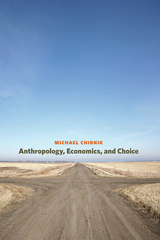Reinventing Practice in a Disenchanted World
Bourdieu and Urban Poverty in Oaxaca, Mexico
Colonia Hermosa, now considered a suburb of Oaxaca, began as a squatter settlement in the 1950s. The original residents came in search of transformation from migrants to urban citizens, struggling from rural poverty for the chance to be part of the global economy in Oaxaca.
Cheleen Ann-Catherine Mahar charts the lives of a group of residents in Colonia Hermosa over a period of thirty years, as Mexico became more closely tied into the structures of global capital, and the residents of Colonia Hermosa struggled to survive. Residents shape their discussions within a larger narrative, and their talk is the language of the heroic individual, so necessary to the ideology and the functioning of capital. However, this logic only tenuously connects to the actual material circumstances of their lives.
Mahar applies the theories of French sociologist Pierre Bourdieu to her data from Mexico in order to examine the class trajectories of migrant families over more than three decades. Through this investigation, Mahar adds an important intergenerational study to the existing body of literature on Oaxaca, particularly concerning the factors that have reshaped the lives of urban working poor families and have created a working-class fraction of globalized citizenship.
- To the Reader
- Acknowledgments
- Introduction
- Chapter One: Colonia Life in Oaxaca
- Chapter Two: Creating the Object of Study
- Chapter Three: Consuelo's Story
- Chapter Four: Place and Identity
- Chapter Five: Work, Money, and Dreams: Transforming Capital
- Chapter Six: Social Capital as a Strategic Choice
- Chapter Seven: The Disenchanted World and the Question of Success
- Chapter Summaries and Discussion Questions for Teachers and Students
- Notes
- Bibliography
- Index











